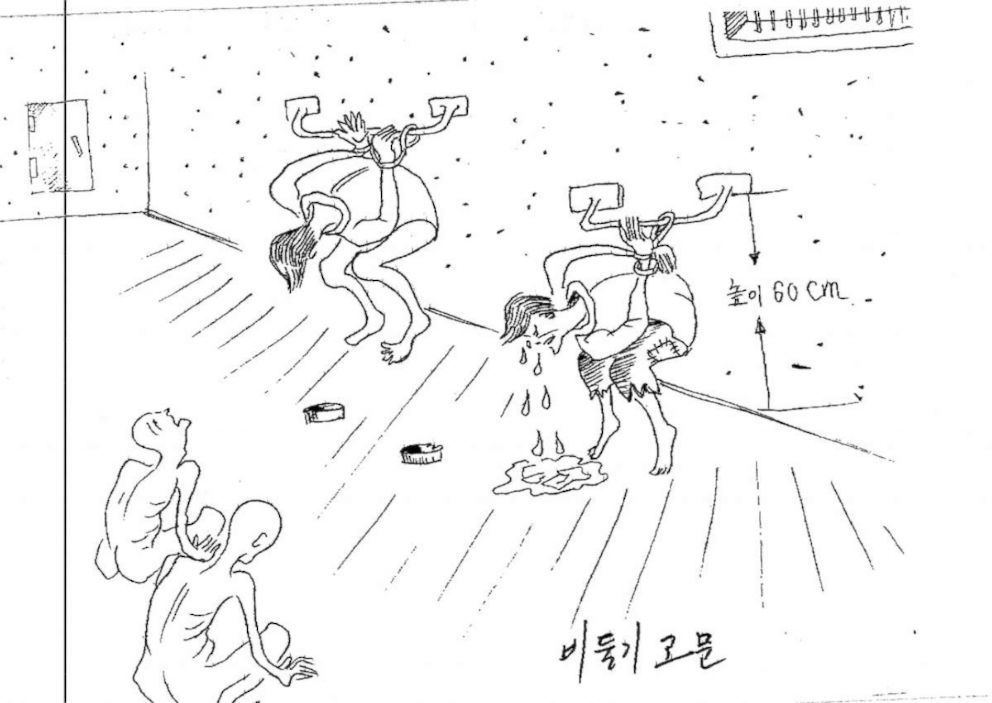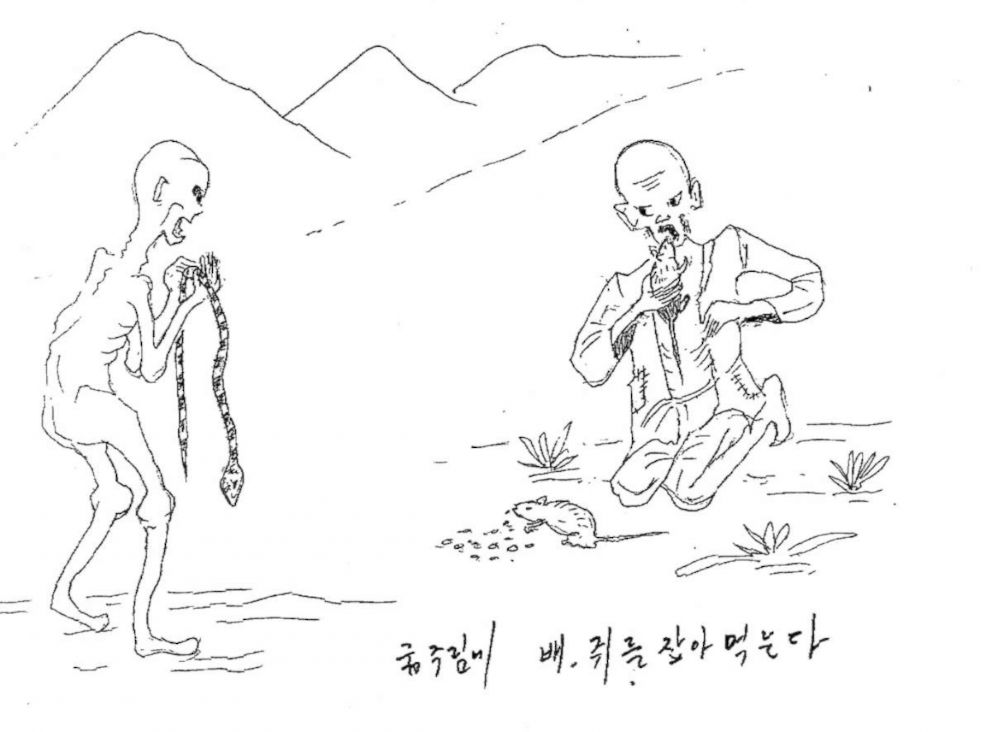As Trump courts Kim, a reminder of the regime's brutality: ANALYSIS
Brutality in North Korean prisons "has no parallel," says a war crimes report.
Addressing the United Nations last September, President Donald Trump made human rights a key issue in his overall condemnation of the North Korean regime.
“No one has shown more contempt for other nations and for the well-being of their own people than the depraved regime in North Korea,” Trump said. “It is responsible for the starvation deaths of millions of North Koreans, and for the imprisonment, torture, killing, and oppression of countless more.”
Then, during his State of the Union address last January, he said "no regime has oppressed its own citizens more totally or brutally than the cruel dictatorship in North Korea."
Now the president seems willing to look the other way, at least temporarily, as he brokers a critical deal for nuclear peace with the despotic regime. In an interview that aired on Fox News Wednesday, he played down the human rights abuses that he so recently condemned, suggesting it's unfair to single out Kim for his brutality.
"He still has done some really bad things," Fox News anchor Bret Baier said of Kim, giving Trump an opportunity to criticize the North Korean dictator. "Yeah, but so have a lot of other people have done some really bad things," Trump said. "I mean, I could go through a lot of nations where a lot of bad things were done."
While it's true that other countries have done very "bad things," it's worth remembering the accusations against Kim's regime are truly unlike others. As it was put last December in a comprehensive report by the War Crimes Committee of the International Bar Association, the Kim dynasty has "designed and perpetuated a brutal, totalitarian regime, a signature feature of which is a network of political prisons that has no parallel in the world today."
The report is hard to read and is deserving of the graphic content warning that accompanies it. Informed by a seminal 2014 human rights report by the United Nations, videos, testimony of former political prisoners and even a former prison guard, the report paints a horrifying picture of brutality in North Korea's political prisons. These examples, quoted directly from the report's executive summary, are graphic:
- prisoners tortured and killed on account of their religious affiliation, with officials instructed ‘to wipe out the seed of [Christian] reactionaries’;
- a prisoner’s newborn baby, fed to guard dogs and killed;
- an abortion induced by three men standing on a wooden plank placed on a pregnant prisoner’s stomach;

- a female prisoner losing consciousness after enduring a beating designed to trigger premature labour, with prison officials killing her baby before she could regain consciousness;
- a prisoner raped by a security officer, after which the officer pushed a wooden stick inside her vagina and beat her lower body, resulting in her death within a week;
- the deliberate starvation, malnutrition, overwork and death of countless prisoners, including between 1,500–2,000 prisoners, mostly children, who are believed to have died each year from malnutrition in one camp alone, with many other prisoners beaten to death for failing to meet production quotas;
- a soldier supervising a forced labor site rolling a log down a steep mountainside, killing ten prisoners as they were carrying logs up the mountain;
- routine public executions of prisoners, carried out in front of both children and adults, designed to subdue the prison population;

- the execution of starving prisoners found digging for edible plants on a mountainside; and
- the beating to death of a prisoner for hiding stolen corn in his mouth.
These examples make up only some of what is in the report. The IBA report estimates between 80,000 and 130,000 individuals are being held in these prisons today, accused of political wrongdoing. The reason for incarcerating children, according to this study, is that the regime enforces a policy of eliminating the "seed" of three generations of its political enemies.
The report also says it's clear that Kim Jong Un and his inner circle directly control the security services that oversee this torture.
In sum, the inquiry found that North Korea and the Kim regime has committed 10 out of 11 crimes against humanity within the Rome Statute of the International Criminal Court, including murder, extermination, enslavement, forcible transfer, imprisonment, torture, sexual violence, persecution, enforced disappearances, and other inhumane acts. Only the crime of apartheid is not applicable, the report says.
White House press secretary Sarah Sanders said Thursday that the president is not downplaying the regime's human rights abuses, despite his comments to Fox News, and says the president raised these issues directly with the North Korean leader. She would not say which issues were specifically raised. Also, there was no mention of human rights in a joint statement from President Trump and Kim about conditions for a nuclear peace agreement.




